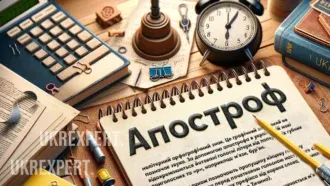
Expert: who is it? Description, general meaning of the term. How to become an expert in your field.

Experts are crucial in many areas of life, providing important knowledge and advice. In this article, we will look at the concept of the word “expert”, its meaning in different contexts, as well as the specifics of the work of experts in criminal proceedings, forensic examination, education, industries and the media.
What does the word “expert” mean?
The term “expert“ comes from the Latin word “expertus”, which means “proven” or “experienced”. In modern language, the word “expert” means a person who has in-depth knowledge and experience in a particular field. This definition covers a wide range of activities and specializations.
Expertise is the process of evaluating and analyzing certain aspects or subjects using specialized knowledge. Experts may be engaged to provide advice, make recommendations, and make decisions based on their expertise. For example, in the legal field, experts often provide opinions that affect the outcome of court cases.
Who can be an expert?
It is possible to become an expert only after a significant accumulation of knowledge and experience in a particular field. This involves not only formal education, but also practical experience and, in many cases, obtaining special certificates or accreditations. Experts must have not only theoretical knowledge, but also the ability to apply it in real-world situations.
It is worth noting here that “expertise” means not only specialization in a narrow field, but also the ability to analyze and interpret data in depth and respond adequately to new challenges.
What is the difference between an expert and a specialist?
Expert and specialist are often used interchangeably, but there are significant differences between them. A specialist is a person who has in-depth knowledge and skills in a particular area, but this does not always mean that they have the extensive experience or comprehensive knowledge required for expert status. Specialists typically perform specific tasks or functions, while experts have a higher level of knowledge and experience and are often involved in formulating overall strategies or making important decisions.
Example:
- A computer specialist can focus on specific technical aspects, such as setting up servers.
- An expert in the same field, for example, can give recommendations on the strategic development of a company’s IT infrastructure or analyze the impact of new technologies on business processes.
Who is an expert in criminal proceedings?
An expert in criminal proceedings is a professional who provides specialized opinions that may affect the outcome of the trial. These experts may be doctors, technicians, psychologists, etc., depending on the nature of the case.
Types of expertise:
- Medical. Determination of the cause of death, assessment of injuries, toxicological studies.
- Technical. Analysis of technical evidence, such as weapons or electronic devices.
- Psychological. Assessment of the mental state of persons involved in the case.
Experts must follow strictly defined procedures to ensure the objectivity and accuracy of their conclusions.
Read also our article: How to find the area of a rectangle
What does a forensic expert do?
A forensic expert performs research and provides conclusions that are used in court proceedings to make decisions. These conclusions must be reasonable and objective.
The forensic examination process includes several stages:
- Appointment of an expert. The court appoints an expert, usually on the basis of a motion by one of the parties or on its own initiative.
- Conducting a study. The expert conducts a detailed analysis of the evidence or objects provided.
- Drawing up a conclusion. Upon completion of the study, the expert provides a written opinion containing the results and conclusions.
Experts must be incorruptible and adhere to professional ethics.
Who are educational experts?
Educational experts evaluate and analyze various aspects of the education system. They can work on developing new curricula, assessing the quality of educational institutions, and providing recommendations for improving the educational process.
The field of activity of educational experts:
- Evaluation of the effectiveness of training programs and methods.
- Developing recommendations for improving the educational process.
- Analyzing the activities of educational institutions and providing recommendations for their improvement.
Educational experts contribute to the introduction of innovations and improvement of the quality of education, which directly affects the level of training of students and pupils.
Industry experts
Subject matter experts specialize in certain areas, such as medicine, technology, economics, or other fields. They have extensive experience and in-depth knowledge in their field, which allows them to make significant contributions to the development and implementation of new methods and technologies.
Table 1: Examples of experts in various fields
| Industry | An example of an expert |
|---|---|
| Medicine | Cardiologist, surgeon |
| Technologies | IT consultant, programmer |
| Economy | Financial analyst, economist |

Experts in these fields not only perform specific tasks but also help with strategic planning, new product development, and process optimization.
The role of experts in the media
Media experts play an important role in shaping public opinion by providing commentary and analysis of current events. They can be engaged to clarify complex issues, provide predictive assessments or analyze trends.
Quote:
“Experts are the bridge between the facts and the public. They help people understand complex issues and make informed decisions.” – James Medina, media analyst
Experts in the media contribute to the expansion of knowledge and the formation of an adequate perception of events and information.
To summarize
Experts have a significant impact on various aspects of public life, from justice to education and media. Understanding their role and functions helps to better navigate complex issues and make informed decisions. In any field of activity, experts ensure accuracy, objectivity and quality, which is critical for the development and functioning of modern society.
Experts are subject matter experts who have in-depth knowledge and experience in a particular topic. They provide professional advice and opinions based on their experience and qualifications.
The term “expert” refers to a person who possesses a high level of knowledge and skills in a particular area, which allows him or her to make informed recommendations and make informed decisions in this area.
Experts are often engaged in law, medicine, engineering, finance, science, and other specialized fields that require in-depth knowledge and experience to solve complex issues.
To become an expert, you need to study your chosen field in depth, gain practical experience, and obtain appropriate education or certifications. Regular knowledge updates and active participation in professional communities also contribute to the growth of expertise.
The main steps include: obtaining specialized education, gaining practical experience, participating in conferences and seminars, publishing articles and research, and establishing a network of professional contacts in the chosen field.
Thus, continuing education is critical for an expert, as it helps to keep abreast of the latest trends, technologies, and techniques in the relevant field.
The author of the Portal UKRexperts
Співпраця - текст
We are sure that knowledge should be accessible to everyone, and that is why UkrExperts strives to be your first choice when it comes to enriching intellectual potential.



